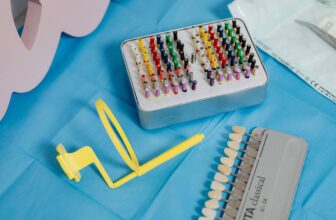Picture a life where every challenge feels a bit lighter, every joy a bit brighter, and every day a bit more meaningful. This isn’t a fantasy—it’s the power of positive relationships at work. In “Fuel Your Mind: The Power of Positive Relationships for Mental Health,” we explore how meaningful connections serve as the bedrock of mental well-being.
From reducing stress and boosting happiness to fostering resilience and enhancing physical health, the relationships you cultivate shape every facet of your life. Whether you’re navigating the chaos of young adulthood, balancing the demands of parenthood, or embracing the wisdom of your golden years, understanding and nurturing your connections can transform your mental landscape.
Dive in to discover actionable insights and strategies that align your relationships with both your personal growth and SEO best practices.
The Foundation of Mental Health
Importance of Mental Health
Mental health matters more than you might think. It’s like the unsung hero of your life, guiding how you think, how you feel, and how you get through the tough stuff. It’s what helps you connect to others and make those split-second decisions. Here’s a quick peek at how it shakes things up in different parts of your life:
| Part of Life | Mental Health Mojo |
|---|---|
| Emotional Well-being | Keeps you cool and collected |
| Physical Health | Impacts everything from heart rate to shut-eye |
| Social Bonds | Quality time with your crew |
| Productivity | Laser focus and gettin’ stuff done |
| Decision-making | Sharp as a tack choices |
No matter where you’re at in life—whether you’re just starting out, juggling a crazy work schedule, dealing with kiddos, or enjoying the golden years—keeping a check on your mental health is a game-changer. Even if you’re already dealing with some mental roadblocks, putting it first helps big time. For more tips and tricks, check out our piece on mental health improvement.
Role of Relationships in Mental Well-being
Good vibes and solid relationships can turn your mental health around. They throw you a lifeline, cut through loneliness, boost your confidence, and make you feel like you belong somewhere. These connections touch every part of life like:
| Life Stage | Relationship Boost |
|---|---|
| Youngsters | Help navigating life’s firsts |
| Office Warriors | Chill vibes and balance |
| Parenting Crew | Shared loads and support systems |
| Golden Years | Lively company and less solitude |
| Mental Health Riders | Encouragement and empathy |
Stress is no match for a great support squad. They offer a shoulder to lean on and ways to tackle tough times together. Plus, they’re great motivators for things like staying active and eating right. Want more stress-busting hacks? Dig into our stress management techniques.
But let’s not fool ourselves; the magic’s in quality. Trust, chit-chat, and respect build those strong links. Families that talk it through can see better mental health benefits for everyone involved. And having a tight circle means bouncing back from life’s curveballs is a bit easier. We chat more about this in building mental resilience.
Throw in some good sleep and solid health, and you’re all set for a balanced life. Get the scoop on how these all tie together in sleep and mental health.
Curious about how your connections can boost your confidence and mental peace? Peek at our insights on social media self-esteem, mindfulness for emotional regulation, and self-compassion techniques.
Positive Relationships and Mental Health
How Positive Relationships Impact Mental Health
Good relationships can seriously boost your mental state. Those who have loving and supportive peeps around them tend to feel less anxious, get less down, and stress way less too. It’s like having your own emotional safety net, making you feel included and generally better.
Here’s how having good connections can work wonders for your mind:
- Stress Buster: Friends and family can help you tackle the daily grind, lowering those stress levels because they’ve got your back.
- Joy Booster: Hanging out with good folks releases oxytocin, that ‘oh-so-happy’ hormone, giving you a content vibe.
- Stronger Backbone: When life throws curveballs, having your squad means you bounce back quicker.
- Body Perks: Good vibes can lead to lower blood pressure and a stronger immune response, helping you fight off the sniffles faster.
| Benefit | What It Does |
|---|---|
| Stress Buster | Less stress thanks to support from your crew |
| Joy Booster | More oxytocin = more happy feels |
| Stronger Backbone | A strong circle helps you recover from setbacks |
| Body Perks | Lower blood pressure, better immunity |
If you’re keen to boost your mental game, building strong relationships is a solid move. Dive into our piece on mental health improvement for more brain-boosting tips.
Types of Positive Relationships

Different folks, different strokes—various relationship types can give your mental health a nice lift. Each connection brings its own flavor of support and good vibes.
- Family Ties: They’ve usually got your back no matter what, offering deep-rooted support and a sense of where you come from.
- Mates: Friends are there for emotions, bringing laughter and wider social circles to cut back on feeling lonely.
- Sweethearts: A good romantic partner can offer tons of emotional support, but keep it healthy and loving, alright?
- Work Buddies: Having cool colleagues can make work less of a chore and way more bearable.
- Community Crew: Joining in with local groups can give a sense of belonging and purpose, nurturing your emotional side.
| Relationship Type | Perks |
|---|---|
| Family Ties | Unconditional love, identity, and crisis backup |
| Mates | Friendship, joy, less loneliness |
| Sweethearts | Emotional support and stability |
| Work Buddies | Less stress, happier work life |
| Community Crew | Belonging, purpose, emotional lift |
Knowing the kinds of relationships out there helps you find and nurture the ones that best tick your boxes. Dive into stress management tips with different relationships by checking our guide on stress management techniques.
From switching phases in young adult life to prioritizing well-being during golden years, keeping good company can dramatically affect mental health. Discover more about nurturing relationships and mental well-being in our ultimate self-care guide.
Building Healthy Relationships
Strong relationships are like good coffee – they make your life better, even on the roughest mornings. They play a big part in keeping your mind happy and your heart content. To get these healthy vibes flowing, communication, trust, and support are your best friends.
Communication
A good chat can solve a bad mood quicker than you think. Communication isn’t just about talking but really hearing each other. It’s about understanding the person across from you and making sure they’re getting when you say “I need space” or “Let’s watch a movie.” Here’s how to keep those channels open:
- Really Listen: Put the phone down, look them in the eyes and actually hear what they’re saying – no multitasking here.
- Speak Your Mind: Saying stuff like “I feel…” instead of “You always…” keeps things honest without turning into a blame game.
- Body Talks: Don’t roll your eyes. Show you’re tuned in with nods, eye contact, and a tone that matches the feeling.
- Keep It Real: Even if it’s awkward, say what’s really going on inside your noggin.
For more communication gems, take a peek at our guide on stress-busting activities.
Trust and Support
Trust is like the secret sauce to a killer relationship pizza – without it, not much else works. Trust means you can count on each other, and support is about being there, rain or shine. Here’s how to nail it:
- Say What You Mean: If you promise to be there at nine, be there at nine – that’s reliability.
- Lend An Ear: Be that rock when things get tough, and cheer them on when they need a push.
- Give Space: Everyone needs their bubble. Respect what others want and need.
- Do Stuff Together: Find common ground and do things that make memories and strengthen your bond.
Trust and support help folks handle life’s mess without losing their cool. They boost your ability to tackle challenges head-on and keep the blues at bay. Learn more about keeping your noggin strong with our tips on building mental resilience.
| What Makes Relationships Click | What It Means |
|---|---|
| Chat Skills | Listen up, speak clearly, non-verbal vibes, honesty |
| Trust | Be where you say, be real |
| Back-Up | Be their cheerleader, share good times |
| Space | Know when to step back |
Good relationships do wonders for your stress levels and your mental health. Whether you’re juggling job hassles, life changes, or just aiming for that feel-good factor, having solid connections helps loads. For handy pointers, take a look at our write-ups on sleep’s impact on mental health and exercise’s perks for the mind.
Positive Relationships Across Life Stages
Good relationships can be the secret sauce to mental happiness as we stroll through life. Whether you’re facing college drama or retirement woes, having a trusty group of people around makes all the difference.
Young Adults Handling Life’s Roller Coaster
For young adults, life’s a whirlwind of picking majors, surviving 9-to-5s, and figuring out whether pineapple belongs on pizza in new friendships. Having sturdy friendships, family chats that don’t end in eye rolls, and wise mentors can keep their cool during the chaos. These connections help build thick skin to life’s curveballs and keep stress at bay. Curious about stress? Check out our stress busters.
Busy Bees in the Workforce
The daily grind can be a pressure cooker, with bosses breathing down necks and to-do lists longer than a CVS receipt. Here, good vibes among work pals can be the pressure release valve, boosting job happiness and sanity. Having that one coworker who listens without judgment makes all the difference. For those “I can’t even” moments, peek at our stress-busting activities.
Parents Juggling Kids and Chaos
For parents, every day can be a mix of tantrums, “why” questions, and the occasional cuddle. They’re the front-liners in their kiddos’ mental health battles. Keeping open conversations and listening (even when the stories are never-ending) makes kids feel secure and loved. Want to dive more into the anxiety talk? Check out anxiety’s effects.
Golden Agers Seeking a Good Time
For the elder crew, positive social ties are the antidote to feeling like the world moved on during their nap. Joining clubs, hitting the dance floor at community centers, or just sipping tea while gossiping can keep loneliness at bay. Staying active not only keeps them in the loop but also spruces up mental gears. Discover more about keeping fit and fab in exercise and mental health magic.
Folks Battling Mental Battles
For those dealing with mental health hiccups, being surrounded by understanding friends and supportive family is a game changer. Having a team on speed dial that cheers for their progress and sticks around during setbacks is golden. This support ensures they’re following through on treatment and getting those much-needed hugs. For a deeper dive into staying strong, see resilience building blocks.
| Life Stage | Benefits of Positive Connections |
|---|---|
| Young Adults | Emotional boost, guidance, connection |
| Professionals | Stress bouncer, job delight, mental sanity |
| Parents | Safe space, free talks, kid whispering |
| Elder Adults | Social fun, no lonely blues, brain buzz |
| Mental Health Challengers | Symptom soother, treatment teamwork, emotional safety |
Regardless of age or stage, having a squad of family, friends, or colleagues can lift our mental spirits. Tapping into these relationships and supporting each other is the key to cruising smoothly through life’s ups and downs. Check out our full self-care toolbox for even more ways to nurture yourself and your connections.
Conclusion
Ultimately, the strength and quality of our relationships are pivotal in shaping our mental health and overall well-being. By fostering positive connections, we create a support system that not only helps us navigate life’s ups and downs but also enhances our emotional resilience, physical health, and personal fulfillment.
Whether you’re building new friendships, strengthening family ties, or seeking supportive communities, each relationship plays a crucial role in fueling your mind and nurturing your mental health.
Remember, investing in these connections is investing in yourself. Embrace the power of positive relationships, prioritize meaningful interactions, and watch as your mental health flourishes, leading to a more balanced and enriched life.
Additional Resources and Authority References
- Mayo Clinic – Mental Health: Strengthen Your Relationships https://www.mayoclinic.org/healthy-lifestyle/adult-health/in-depth/mental-health/art-20046477
FAQs
How do positive relationships influence mental health?
Positive relationships provide emotional support, reduce stress, enhance feelings of belonging, and contribute to overall emotional and psychological well-being.
What are the key elements of building healthy relationships?
Effective communication, trust, mutual support, respect for boundaries, and shared experiences are essential for cultivating healthy and enduring relationships.
Can positive relationships improve physical health?
Yes, strong social connections can lead to lower blood pressure, improved immune function, and better overall physical health.
How can different life stages benefit from positive relationships?
Each life stage—from young adulthood to the golden years—benefits uniquely, such as providing guidance, reducing loneliness, offering support during parenting, and fostering a sense of community.
What strategies can help strengthen existing relationships?
Active listening, open communication, spending quality time together, showing empathy, and respecting each other’s boundaries are effective strategies to strengthen relationships.
Are online relationships as effective as in-person ones for mental health?
While in-person interactions often provide deeper connections, online relationships can also offer significant support and a sense of community, especially when in-person options are limited.
How do positive relationships contribute to stress management?
Supportive relationships offer practical help, emotional comfort, and encouragement, which can significantly reduce stress levels and improve coping mechanisms.
What role do positive relationships play in decision-making?
Trusted connections can provide valuable perspectives, advice, and emotional support, aiding in making informed and confident decisions.





